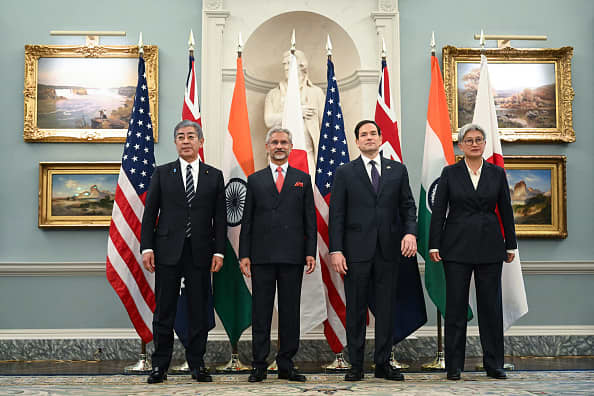Cousin relationships are no longer a 'majority' in Bradford's female Pakistani community amid rising awareness of the birth defect risks.
A decade ago, a Government-funded surveillance project found that 62 per cent of Pakistani heritage women were in consanguineous relationships.
This figure has since dropped to 46 per cent, researchers say.
It comes amid a push to ban first-cousins from marrying.
Independent MP Iqbal Mohamed drew huge flak yesterday after speaking against the motion.
A senior Tory said it was 'shocking' that an MP would 'defend this revolting practice'.
Experts began tracking the prevalence of consanguinity in Bradford – home to one of the UK's biggest Pakistani communities – in the late noughties.
Almost 12,500 pregnant women were quizzed about their relationship status with the father of their child.
The Born in Bradford study was later repeated with another cohort of 2,400 women between 2016 and 2019.
Final results were published last month by Wellcome Open Research, a platform ran by the prestigious Wellcome Trust.
Sharing an earlier version of the results with the BBC last year, Dr John Wright, chief investigator, spoke of the 'significant shift' seen in just under a decade.
He described cousin marriage as having gone from a 'majority activity to now being just about a minority activity'.
Dr Wright added: 'The effect will be fewer children with congenital anomalies.'
The Born in Bradford figures, it was said, may indicate that the numbers of Pakistani people marrying cousins across the UK as a whole is also falling.
Reasons behind the fall are thought to include high educational attainment, stricter immigration rules and changes in family dynamics.
Writing in their study, the team said: 'It may be we are seeing generational changes, and newly evolving societal norms.
'But these changes need to be monitored to see if they are indications of a lasting change and they need to be considered in other settings where consanguinity is common to see how widespread these reductions in consanguinity are.'
More than half of residents living in the Bradford West constituency, represented by Labour MP Naz Shah, are Pakistani.
The figure is 36 per cent in Bradford East and nearly 17 per cent in Bradford South – the city's two other constituencies.

Birmingham also has a large Pakistani community, with up to 40 per cent of people being of that ethnicity in parts of the city.
Cousin marriage was once common among Britain's upper classes.
Historically it was seen as a way of firming up alliances and keeping wealth and land in the family.
Despite falling out of fashion, the practice is still common in some communities, such as travellers.
Queen Victoria and Prince Albert were first cousins, sharing a set of grandparents.
The reality of 'extreme' inbreeding in the UK was exposed pre-Covid.
Scientists analysing the genes of 450,000 Brits believed 125 had parents who were either first- or second-degree relatives.
This equated to a rate of one in 3,600.
When extrapolated to the wider population, the 2019 study, published in the journal Nature Communications, was reported as meaning that 13,000 Brits were conceived through extreme inbreeding.
First degree relations include those between parent and child, while second-degree includes more distant, but still genetic close relatives, such as half-siblings.
The University of Queensland authors noted, given the nature of the subject and the limited variety of Brits included in the sample, true rates could be significantly higher or lower.
Incest — sexual intercourse between immediate relatives — is illegal in the UK even if consensual.
Marriages between certain blood relatives — as well as some step relationships — is also illegal.
However, it is legal to marry your cousin in the UK.
Former Conservative minister Richard Holden yesterday proposed a Bill to outlaw the practice entirely.
Saying now was a 'sensible time' to look at the issue, Mr Holden said: 'People already think it is illegal and then are surprised when you mention it isn't.'
He pointed to evidence showing it heightens the risk of birth defects and claimed that it can 'reinforce negative structures and control women'.
Mr Mohamed, representing Dewsbury and Batley, suggested that MPs should avoid 'stigmatising' the issue, which is seen as 'very positive' in some communities.
Instead of banning it outright, he said a 'more positive approach' involving advanced genetic tests for prospective married cousins would be more effective in addressing issues around it.
Mr Mohamed, who is part of the Independent Alliance of MPs – including ex-Labour leader Jeremy Corbyn, faced criticism from senior Tories for defending the practice.
Tory justice spokesman Robert Jenrick said: 'It’s shocking that an MP would defend this revolting practice which is linked to birth defects and abusive relationships.
'We know this is causing immense harm. This practice has no place in the UK.'
Labour refused to back moves to ban first-cousin marriages.
Worldwide, one in 10 people are thought to be a result of a consanguineous union.
Estimates on consanguineous marriage prevalence around the world vary.
Studies have put Pakistan as having one of the highest rates globally at 65 per cent of unions.
This is followed by India (55 per cent), Saudi Arabia (50 per cent), Afghanistan (40 per cent), Iran (30 per cent) and Egypt and Turkey (20 per cent each).
Data suggests the risk of a child of first cousins developing a genetic condition is up to 6 per cent, double that of children from unrelated parents.
While this means the majority of children born in such circumstances will be healthy, the increased risk is undeniable.
As well as birth defects, potential conditions children of first cousins are at increased risk of include developmental delays and ongoing genetic disorders.
These can include conditions such as blindness, low IQ, cleft palate, heart problems, cystic fibrosis, and even an increased risk of infant death.












